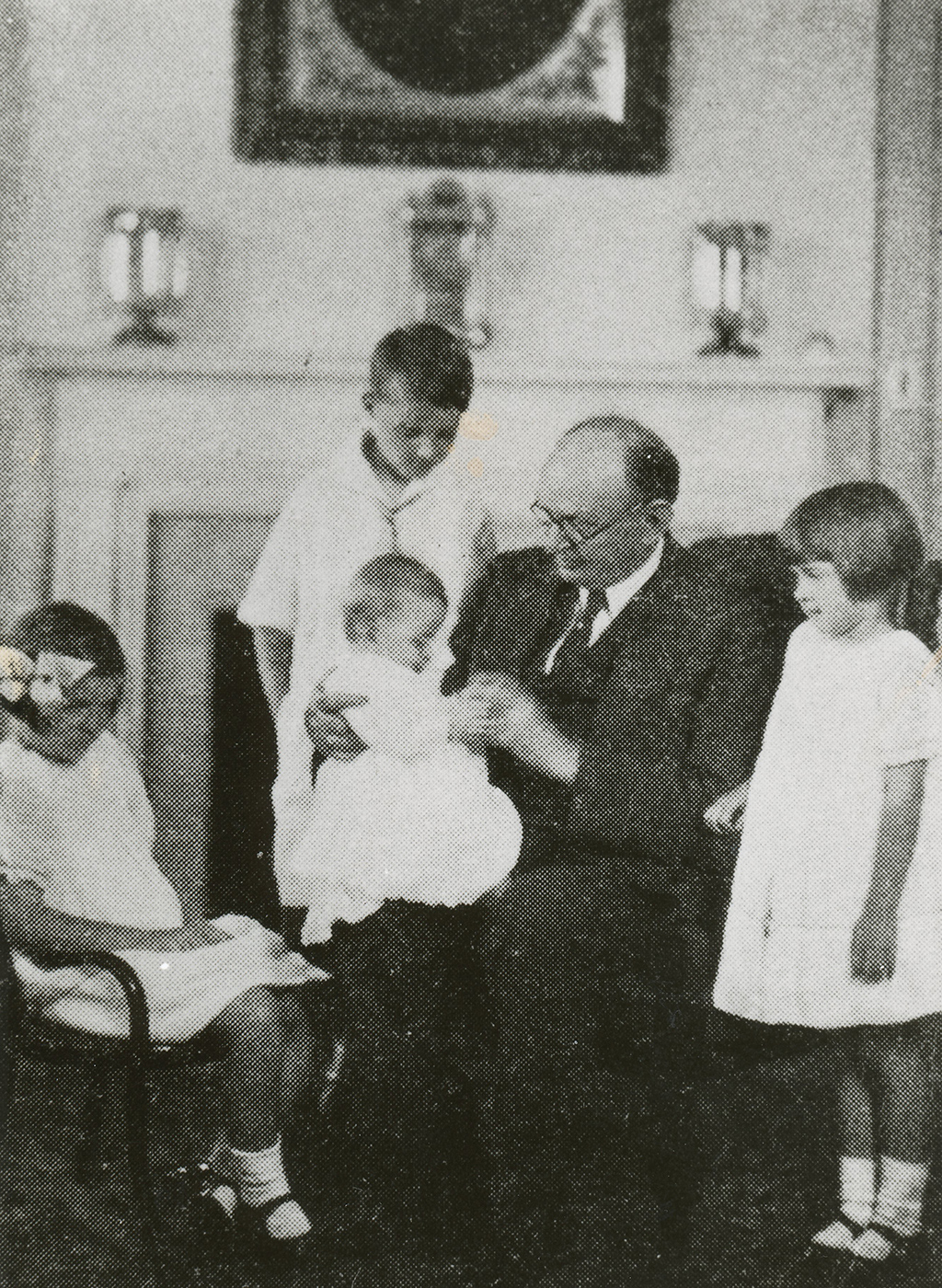Although A. T. Robertson, Southern Seminary’s world-renowned New Testament professor, passed away in 1934 after suffering a heart attack a month before his seventy-first birthday, a compilation of his sermons was published in 1937 under the title Jesus as a Soul-Winner and Other Sermons. Fittingly, the final chapter was titled “Heaven as Home,” expounding upon 2 Corinthians 5:1, “for we know that if our earthly house of this tabernacle be dissolved, we have a building from God, a house not made with hands, eternal in the heavens.”

Robertson’s message featured five major points of exposition. First, he posited that Christians are strangers and pilgrims on earth, with special reference to Hebrews 11:13-16:
“We are to be in the world, but not of it — a lesson for all Christians to learn. Our real citizenship is in heaven . . . we are therefore a colony of heaven here on earth. Each group of Christians is a sample of heaven, to show men what that community ought to be, to make it a fit place for citizens of heaven to live in.” (( A. T. Robertson, Jesus as a Soul-Winner and Other Sermons (New York: Fleming H. Revell Company, 1937), 152. ))
His second point followed logically from the first: that Christians on earth are comparable to tent dwellers who hold a title deed to their permanent home:
“We have here and now the title-deed to the home in heaven. We shall enter it by and by and present our title-deed for occupancy, even the word of Jesus Christ, who purchased it for us by His own blood.” (( Ibid., 153.))
Robertson used John 14:1-7 for his third point: Jesus has promised to take Christians home. Robertson viewed this text not as a preview of an eternal boarding house but as an emphatic picture of the perfect spiritual union of the believer with Christ:
“It is not a spatial picture of heaven as an enormous apartment house, but of heaven as home, with God as the central figure in it and with room in God’s heart and home for each of us. . . . That is our best picture of heaven, to be with Jesus, and thus ‘at home with the Lord,’ conformed at last to His likeness and with the likeness of children of God feeling at home in the family of God forever.” (( Ibid., 154. ))
Fourth, the meaning of heaven is to be at home with Christ, God the Father, and the entire host of the Redeemed. Robertson countered the commonly expressed apprehension that Christians will not be able to recognize their loved ones in heaven by noting that Jesus’ disciples ably recognized Moses and Elijah at the Mount of Transfiguration, and that Jesus himself assured his disciples that they would recognize Him in the heavenly kingdom. Thus, “if we can recognize our Lord and Saviour, surely we can know each other.” (( Ibid., 155. ))
Robertson also appealed to the imagery of the holy city from Revelation 21:
“The new heaven is described as a city, the holy Jerusalem coming down out of heaven from God. It is like a bride adorned for her husband. God makes His ‘tabernacle’ with men, as in the garden of Eden before sin entered. Sin cannot enter here, nor death, nor sorrow, nor crying, nor toil. God Himself will wipe away ever tear from our eyes. What a picture of glory is this!” (( Ibid., 156. ))
Finally, Robertson pointed to Jesus as the Christian’s exclusive guide to the heavenly home. According to the promise of John 14:4 — “And where I am going, ye know the way”— Robertson remarked that Jesus “has not left us alone in the wilderness to find the way to our heavenly home.” (( Ibid. ))
Robertson took the opportunity to emphasize the exclusivity of Christ as the only way to heaven:
“Call this narrow, illiberal, anything you will. There is no other way to the Father but by the Son. . . . So then let us not complain that there are not other ways to heaven. Let us rejoice that there is this way and walk in it here and now.” (( Ibid., 157. ))
Robertson’s own funeral service bore witness to the confidence he held in his Savior to see him through from his “tent of the body” into heaven’s splendor. The hymn medley included “Jesus, Keep Me Near the Cross,” “Rock of Ages,” “My Faith Looks Up to Thee,” and “I’ve Found a Friend.” They also sang “O Love That Wilt Not Let Me Go,” Robertson’s personal favorite. Revelation 21:1-7 was among the biblical texts read by his pupil-turned-peer professor Hersey Davis. (( Don Norman, The Home-going of Dr. Robertson (1934), 4. ))
More resources on A. T. Robertson can be viewed in the Archives office of the James P. Boyce Centennial Library.





